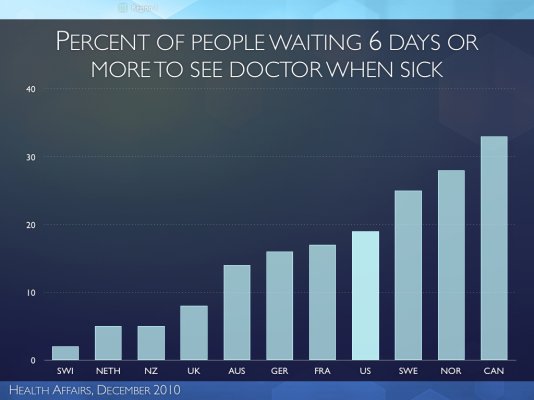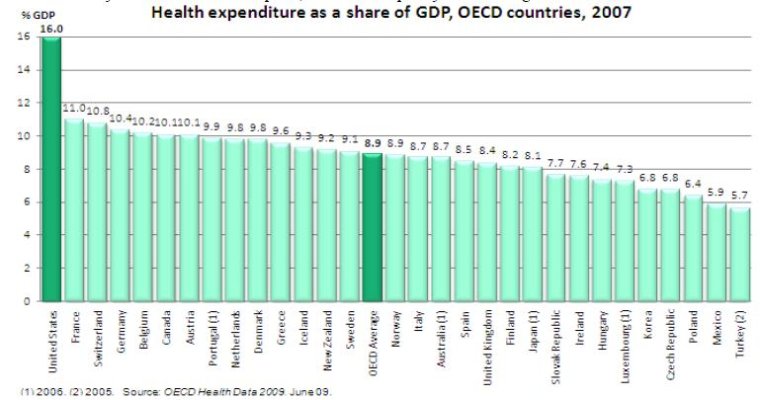If the individual mandate were found to be unconstitutional, the insurance exchanges could still go ahead and be set up. Subsidies (i.e. forced wealth redistribution) could be set up so that no person would pay more than, say, 10% of their income for insurance (and the truly indigent would pay less than that or nothing), and the companies would have to accept every applicant and charge them the same rate.
Well that's why the participation in the mandate is crucial. Without it, there would be too few people to level the "cost" playing field. That is why it is considered an integral part of the whole bill. The question in my mind is: Is that of any concern to the Supreme Court in their rulings?
You and I have spared before on this subject (health care bill) so I am aware of your sentiments concerning having to pay other peoples bills. You feel everyone should earn their own way, and for the most part, I agree with you. I don't think that everyone is entitled to live in a nice house or drive a nice car, or have great clothes etc.. But where we do differ: I do feel we as a collective society should all have a right to expect at least a basic level of health care. Not necessarily the same level, but at least a marginally acceptable level for sustaining life. All other industrial countries do, and even many third world countries do. We as a county in this big world of ours are very much alone in our thinking otherwise in this matter (or at least half of our country)
And I also happen to feel that this can best be achieved by government collective sharing for the good of "the all." If you don't travel a particular highway in your state, should you not have to be taxed for it. If your house doesn't burn down, and you don't have to call the fire company, should you be reimbursed your tax money? There are some things that can only be best served by everyone putting into the pot. If you eat less, and throw out less garbage should you get a rebate? You get my drift, right?
As for Medicaid recipients. Even though they may be thankful they have it, I would guess that most would trade places with you or me in a heart beat. I think the difference here lies in our "shared list". I think health care belongs on it and you don't. I don't think the poor receiving Medicaide are always getting the same level of care that you and I do and as long as I could afford it, I would probably pay for a private policy myself. But, then again, I sure would want it if had no other options.
Actually dividing the pot up as we have proves to be not very cost effective. The government doesn't collect enough revenue to cover all the health claims that come in at this age group (Medicare -65 and over). Wouldn't it make more sense to consolidate the insurance across the board to include everyone. If you think that the government is incapable of running the show, fine. Let an outside NON PROFIT insurance company do it. (but with strict accountability)
Some countries who have a system like this allow for those who can afford more to buy supplemental insurance that will provide them with more perks (private rooms, better doctor selection, newest drugs not just generic, etc.) The mandatory basic policy premium is deducted from their pay checks weekly, or by weekly or in some cases paid for by the company, and the individual then can if they so choose, up their coverage and chose a supplemental policy of their own which they pay for themselves directly. They can choose any additional level of care that they want. (They earned it) I guess you could say it's a Medicaid for all, and if you can afford more, you get it. The basic policy doesn't allow you to go to Sloan Kettering when you get cancer, you go to your local cancer center in your area. With the supplemental (paid for by the money you have earned through your hard work), you can go to Sloan Kettering. Could you be comfortable with a system like this?
I enjoyed reading about what the Taiwanese government did (I believe it was Taiwan, if my memory serves me right) They were one of the latter nations to tackle the health care issue. They were aware of some of the bad experiences some other countries had with theirs. So they formed a committee to research I think something like 26 different countries, who have had some form of universal health care for a while.
I think it took them almost two years to complete the study, but they physically visited each country, and spoke not only with the health officials, government officials, treasury, but visited the hospitals, talked to the doctors and the staff, the patients, and every component of the industry. They made up a report of their findings from each country - listing how they ran it, what worked and what didn't, and most importantly why.
With this study in hand, they came back to their country and sat down to draw from the mistakes and accomplishments of each countries system, and put together a plan from this information gathered, to incorporate the best of what they found, and avoid the worst of what they found.
Now call me nuts, but doesn't this seem like a very logical approach for refining our own countries future health care needs and dealing with rising costs.

Just some interesting information for any of you interested.



